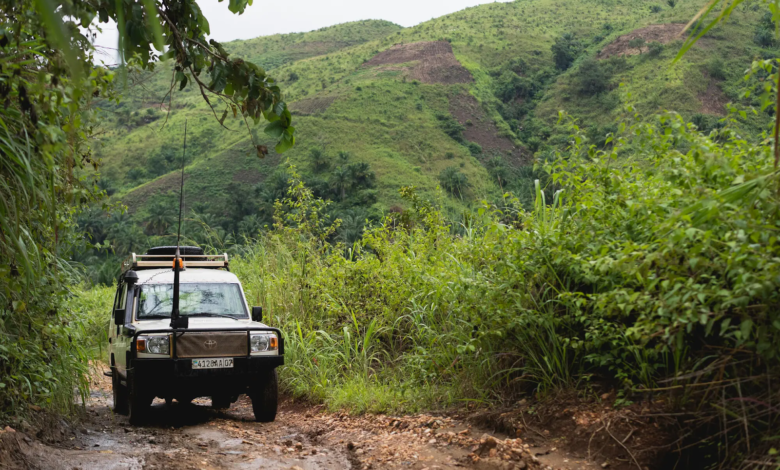MSF Suspends Mission In Part of Eastern DR Congo Over Insecurity
Until security improves, MSF says it is closing its activities in some parts of DR Congo’s Ituri.

Médecins Sans Frontières/Doctors Without Borders (MSF) says it has closed all projects in some parts of Ituri Province, Eastern Democratic Republic of Congo over insecurity and government’s failure to tame the crisis, four months after an attack on its staff in the region.
The medical charity said it was acting after warring parties failed to reach a truce and establish stability in the region.
Five of its staff were attacked in Nizi and Bambu, Djugu territory, a few kilometres away from Buni, Ituri’s capital on Oct. 28, 2021, with two members of the team sustaining bullet wounds. They were travelling to assist isolated communities with medical services.
The convoy came under fire even though it was clearly showing the MSF name and emblem, according to an earlier statement by the charity organisation.
But four months later, no perpetrators were brought to justice over the attack.
MSF had asked the Congolese authorities to launch an investigation into the incident, “but this has not happened.”
“We have been left with little choice but to close our projects,” Olivier Maizoué, MSF programme manager for DRC, said in a press release on Monday, March 21.
“The risks are simply too high and therefore it is impossible for MSF to return to those areas with confidence.”
The medical charity said it was regretful the decision to stop work in the town might have dire consequences for a population with acute needs, “but we cannot risk lives to save lives.”
According to the UN refugee agency, severe acute malnutrition affects nearly 5,000 children under the age of five, while nearly 48,000 pregnant women are at risk of giving birth while on the move, exposing themselves to complications that would aggravate maternal and neonatal morbidity and mortality, which are already too high in this province.
For two decades, the eastern DR Congo has endured armed conflict fuelled by ethnic rivalries and territorial disputes with more than 100 armed groups including CODECO, the Democratic Forces for the Liberation of Rwanda (FDLR) rebels, and the Ugandan Allied Democratic Forces (ADF), in operation.
Djugu territory, where the attack took place, borders Lake Albert and Uganda to the east and is the epicentre of the crisis in gold-rich Ituri province.
Worrying Trend
The October attack was not the only recent incident to impact MSF teams in Ituri province, according to MSF.
In June 2021, the main referral hospital in Boga town, which was the last remaining health facility in the district and supported by MSF, was severely damaged during fighting in the town.
At least 12 people lost their lives, while several buildings, including the intensive care unit, were burnt down, and the hospital’s pharmacy and stocks of medical supplies were looted, the medical charity said.
MSF had coordinated its rehabilitation over many years— work which was undone in a matter of minutes.
“We are concerned by the numerous attacks and looting of health facilities and we are deeply disturbed by the climate of impunity that reigns today in this part of DRC,” Jérome Alin, MSF head of mission, said. “We know that impunity fuels yet more violence.”
Alin said MSF teams in other areas of DRC had witnessed similar incidents aimed at medical and humanitarian workers.
To voice their concern and show solidarity with their colleagues and with everyone affected, MSF staff in DRC would stage a one-day protest on 23 March 2022.
“On that day, only lifesaving medical activities will continue,” the medical charity said.
MSF would continue to provide medical and humanitarian aid elsewhere in Ituri province where it supports three general hospitals, 12 health centers, four health posts and 32 community health posts in Drodro and Angumu health districts, providing pediatric care and mental health services, treatment for malnutrition and malaria, and assistance for survivors of sexual violence.
Additionally, it would support local health authorities in Nizi and Bambu with donation of medicines and medical supplies to cover the months ahead.
However, MSF said an investigation must be carried out by the authorities and called for all warring parties as well as all persons in a position of influence to work on ensuring an environment that allows people to receive the aid they so desperately need.
“All parties to the conflict are supposed to facilitate unimpeded access of humanitarian aid for civilians in need and respect and protect humanitarian personnel,” it said.
MSF called on all parties to the conflict to respect international humanitarian law and protect medical facilities, health workers, ambulances and patients.
Support Our Journalism
There are millions of ordinary people affected by conflict in Africa whose stories are missing in the mainstream media. HumAngle is determined to tell those challenging and under-reported stories, hoping that the people impacted by these conflicts will find the safety and security they deserve.
To ensure that we continue to provide public service coverage, we have a small favour to ask you. We want you to be part of our journalistic endeavour by contributing a token to us.
Your donation will further promote a robust, free, and independent media.
Donate HereStay Closer To The Stories That Matter




